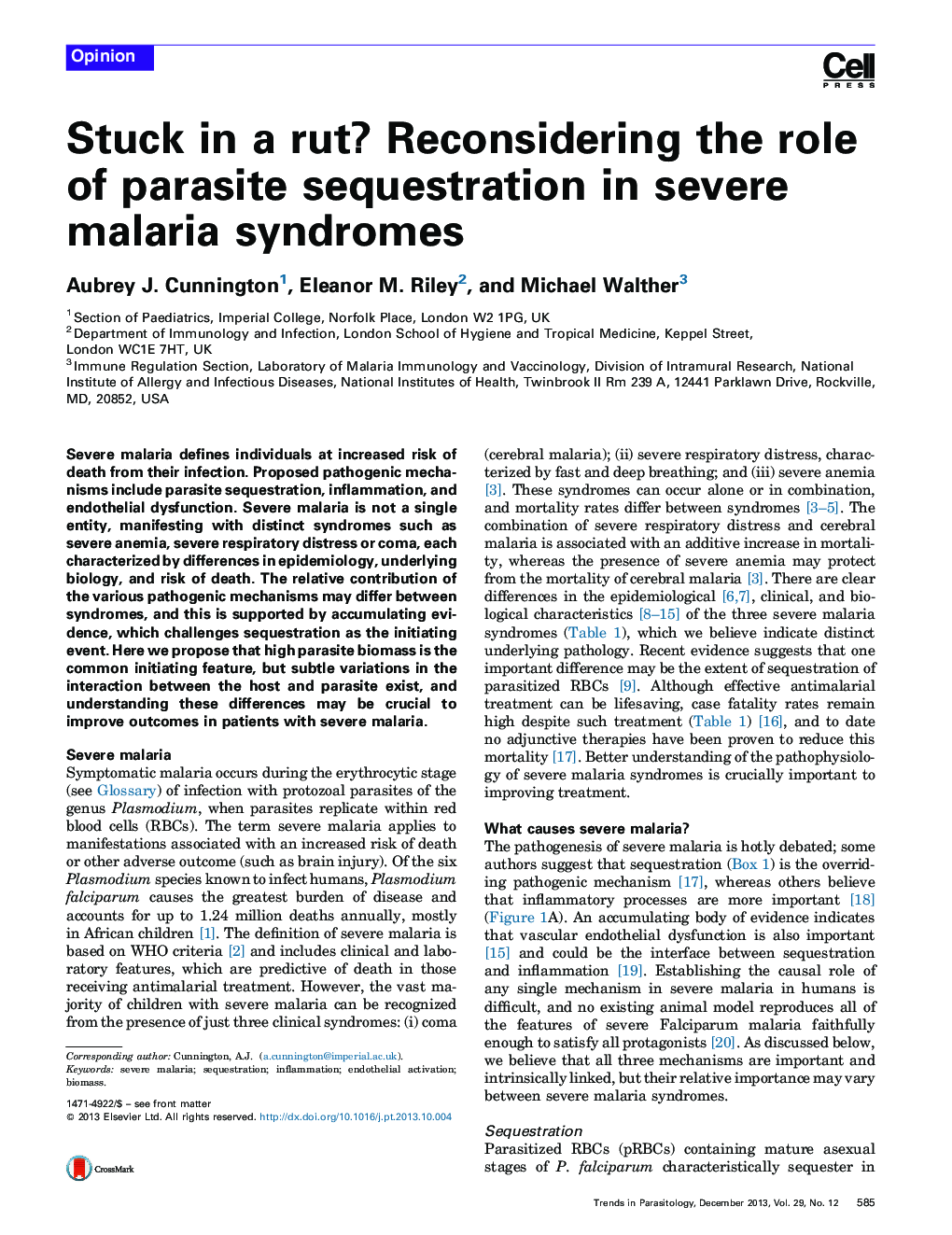| Article ID | Journal | Published Year | Pages | File Type |
|---|---|---|---|---|
| 3423318 | Trends in Parasitology | 2013 | 8 Pages |
•The concept that parasite sequestration per se initiates severe malaria is challenged.•We contend that high parasite biomass is the main determinant of severe malaria.•Explanations for different severe malaria syndromes are suggested.•Understanding severe malaria pathogenesis is proposed as key to better treatment.
Severe malaria defines individuals at increased risk of death from their infection. Proposed pathogenic mechanisms include parasite sequestration, inflammation, and endothelial dysfunction. Severe malaria is not a single entity, manifesting with distinct syndromes such as severe anemia, severe respiratory distress or coma, each characterized by differences in epidemiology, underlying biology, and risk of death. The relative contribution of the various pathogenic mechanisms may differ between syndromes, and this is supported by accumulating evidence, which challenges sequestration as the initiating event. Here we propose that high parasite biomass is the common initiating feature, but subtle variations in the interaction between the host and parasite exist, and understanding these differences may be crucial to improve outcomes in patients with severe malaria.
